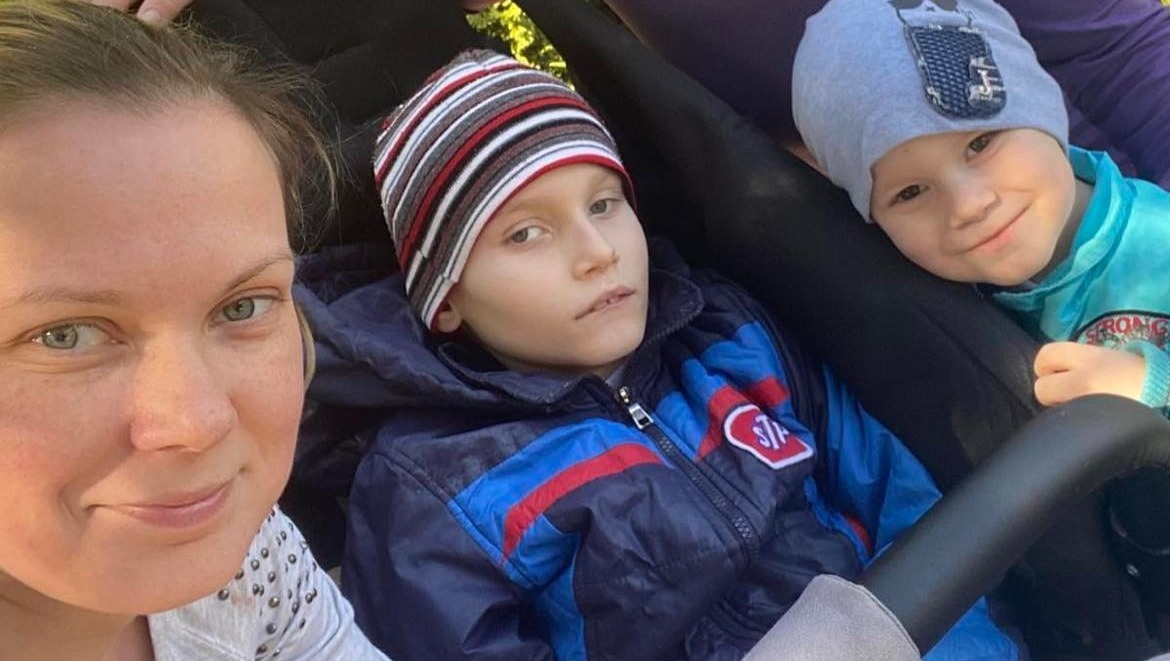The story of Andryusha
My husband and I had our first son, Andryusha, in 2011. Despite seeming happy and healthy at birth, we consulted with his doctor when he was three months old because his muscles were weak and he was unable to hold his head up. At six months old, Andryusha was sent to the hospital for a full examination. After countless tests, doctors could not determine his diagnosis. It was not until Andryusha was seven years old, when a new method of genetic testing called Complete Exome Sequencing became available in Ukraine, that we finally received a name for his condition: GRIN2B disorder.
Andryusha’s diagnosis left us feeling confused and helpless, especially since there were no other children in Ukraine with this disorder. Most of his doctors had never heard of the condition and none of them were able to answer our questions. Eventually, we learned that GRIN2B disorder is a neurological condition that is often characterized by low muscle tone, developmental delays and seizures, and that there were no approved treatments for it.
My husband and I made it our goal to support Andryusha as much as we could. Before the war in Ukraine began, we spent a lot of time traveling to therapy centers across the country and internationally. Instead of attending school with his peers, Andryusha had a full schedule of therapies, including motor skill development activities, Montessori classes, acupuncture, equine, and even dolphin therapy. These activities helped maintain his strength and improve his quality of life in small steps.
Once the war began in 2022, our abilities to leave the house and help Andryusha were taken away. As anyone caring for a child with a rare disease knows, it can be hard to start making progress again once the routine of therapy is disrupted. We were relieved to hear from members of the global GRIN2B community, who helped coordinate a plan to help us leave Ukraine. They worked around the clock to bring us to safety in Poland and save my family. During such an overwhelming time, their support gave us confidence that we would be okay.
Since then, the teams at the GRIN2B Foundation and GRIN Therapeutics have helped us settle down in our new temporary home in Barcelona. While living in a new country comes with its own challenges including learning a new language and adapting to a different culture, Andryusha has been able to go to a school with a student who has the same diagnosis as him. We have a support system of teachers, medical professionals and a community that can help answer questions when we are unsure.
For the last two years, my husband and I have had two goals – to survive the war and make sure Andryusha does not lose any of the progress he has made in his therapies. I feel optimistic that further research will allow for a deeper understanding of GRIN2B disorder so that Andryusha will have access to a treatment in the future.
